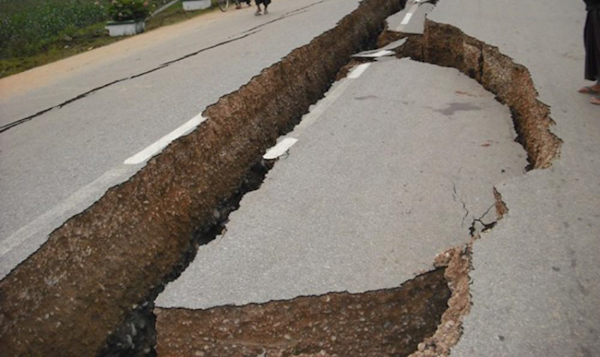Online Photo
Earthquakes have rocked campus and the Edmond area for the past several weeks.
While the origin remains unknown, Amanda Nichols, assistant professor of chemistry, gave insight to the frequent shaking.
“[What causes the earthquakes] is a big controversy right now,” Nichols said. “Is it … natural cycles causing these earthquakes, or is it something human induced? The controversial idea is whether or not fracking causes it.”
Fracking, or hydraulic fracturing, is a process by which fluid is injected into the ground at a high pressure during drilling to fracture shale rocks in the attempt to release natural gas that may be trapped inside.
Nichols said fracking does not appear to be the cause of the earthquakes.
“It seems like most of the news reports that I’ve seen aren’t laying it at the feet of fracking, that it’s just natural,” Nichols said. “I think that there are some investigations going on with the geological survey for the state. They are trying to run experiments to see if fracking causes earthquakes in the state.”
Nichols said the earthquakes on and around campus have not been severe.
“We are having an unusually high amount of earthquakes, but they are still pretty moderate to where they aren’t causing damage,” Nichols said. “I think the highest magnitude range we have experienced is a 3 or so [on the Richter Scale]. You need a 4 or higher to cause moderate damage.”
Nichols also said that the earthquakes in the Edmond area have the potential to grow in magnitude, but they cannot be forewarned against.
“[The earthquakes] don’t give very much warning,” Nichols said. “If you think about states in which earthquakes are very common, like California or countries like Japan, I think that any research or work that they have done to try to develop a warning system – it’ll still only be like a few seconds or maybe a minute before [the quake].”
Since the earthquakes have the potential to grow in magnitude, Nichols cautions students to stay alert and know what to do in the event of a quake.
“It would be a good idea to keep an eye on things,” Nichols said. “If the intensities increase, obviously that would be something to be mindful of. Keep an eye on the news and know what you’re supposed to do in an earthquake. I think that people here in Oklahoma aren’t used to it, so we freeze and wait it out – you’re not supposed to do that. You’re supposed to go under a door or a sturdy surface.”
Sophomore Colby Hearn said that students in the dorms were told what to do in an earthquake, but students living in the apartments or off campus have not been told this information. Junior Aubrey Henke feels that Oklahoma Christian should keep the rest of the student body informed even though the quakes are relatively small.
“I think OC should give us methods to take in the event of a bad earthquake,” Henke said. “But as of right now, I don’t feel them, so I don’t see why we would need to have a big system set up for them. If [the earthquakes] got a lot worse, they would be scary.”
However, sophomore Toua Her said it would be futile to prepare the student body for the event of a larger earthquake.
“What happens, happens,” Her said. “We can’t prepare; we don’t know how to prepare. There might be shelters that we can go to, but they will break down. Even in California, they don’t know what to do in an earthquake. They just tell them to get out. We can’t really prepare while we are here.”














Be First to Comment